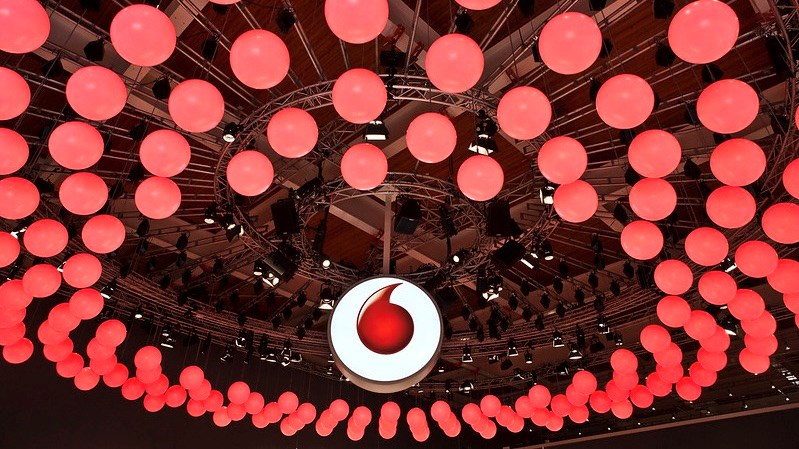
- Vodafone rejects Iliad’s €11 billion-plus offer for its Italian unit - Iliad says the offer was great but it's not increasing the bid
- TIM Brasil gets its hands on Oi at last
- Another Italian op erator CEO steps down
An M&A tussle in Italy, the closing chapter of a takeover in Brazil, and another telco CEO resignation in Italy lead today’s news roundup.
Following speculation that Iliad had a private equity partner for its bid to acquire Vodafone Italia, Vodafone has acknowledged that it received a “highly preliminary, non-binding indication of interest from Iliad S.A. and Apax Partners LLP to acquire 100% of Vodafone Italy, and that it has rejected the offer as being “not in the best interests of shareholders” (translation – the offer is too low). Iliad responded quickly, saying the €11.25 billion offer it made with Apax was a good one for Vodafone shareholders as it offered a "very high premium" and would be paid in cash. And if Vodafone thought its rejection might prompt an immediate increase in the offer, it was wrong... Iliad noted that it will "pursue its standalone strategy" that has seen it sign up more than 8.5 million mobile customers in just three-and-a-half years, adding that it has just now also launched its fixed broadband offering, a move that will no doubt cause further pain to the incumbent service providers in Italy. Is this the end of the M&A action in Italy's telco sector? We doubt it.
After a long drawn-out takeover process, the €2.6 billion sale of Brazilian mobile operator Oi to a consortium of TIM Brasil, Telefônica Brasil (aka Vivo) and Claro has been approved by the antitrust Authority CADE (Conselho Administrativo de Defesa Economica) as well as regulator Anatel. There are still some processes to be completed for the acquisition, first agreed in September 2020, to close, but it’s basically now a done deal. “TIM reaffirms that the transaction, as of its completion, will add value not only to its Brazilian subsidiary but to the whole Group and its shareholders as it will accelerate its growth and increase operating efficiency through relevant synergie,” the beleaguered operator notes in this announcement.
Jeffrey Hedberg, CEO of Italian operator Wind Tre, is stepping down from the role, effective from the shareholder meeting scheduled for April. He will continue to be on the operator’s board of directors but his executive duties following his departure as CEO will be shared between current Chief Commercial Officer Gianluca Corti and current Chief Technology Officer Benoit Hanssen. Hedberg’s tenure at the helm of the operator dates back to June 2017 and includes overseeing the integration between Wind and Three Italia after their merger was completed in November 2016. “Being exposed to so many talented people has been an honour and a tremendous source of inspiration. Today, at 60, I feel the need to start a new phase in my life and my career,” Hedberg commented. The company said his successors have played “decisive roles” in the company’s transformation of the past few years and their new responsibilities will include focusing on “improving customer experience, customer engagement and retention, and transformation strategies” of Wind Tre, alongside working on the company’s transition beyond traditional core business. You can read more about the move in the company’s statement here (in Italian). Hedberg’s decision comes only a few months after Luigi Gubitosi stepped down as CEO at TIM (Telecom Italia) following a takeover offer from KKR: Pietro Labriola was confirmed as TIM’s new CEO last month.
Mexico’s Federal Institute of Telecommunications (IFT) has allowed América Móvil’s unit Telcel to offer 5G services. Telcel will pay the Mexican authorities more than MXN900 million ($44 million) per year to cover fees for the authorisation to use capacity in the 3450-3550 MHz band for its mobile 5G services. Previously, it was only allowed to provide fixed wireless access (FWA) services in the country. The IFT confidently proclaimed the authorisation will help Telcel be able to “put into operation the largest 5G commercial network” in Latin America. “In this way, our country is at the forefront in the deployment of fifth generation mobile services”, the regulator stated, adding the move will result in improved telecoms services as it will rebalance the traffic volume. You can find out more in IFT’s statement here (in Spanish). IFT’s move follows shortly after it dealt a major blow to América Móvil by dismissing its request to start offering pay-TV services in Mexico, citing market dominance concerns. (See What’s up with…. Deutsche Telekom, O-RAN Alliance, Altice.)
- The staff, TelecomTV
Email Newsletters
Sign up to receive TelecomTV's top news and videos, plus exclusive subscriber-only content direct to your inbox.




